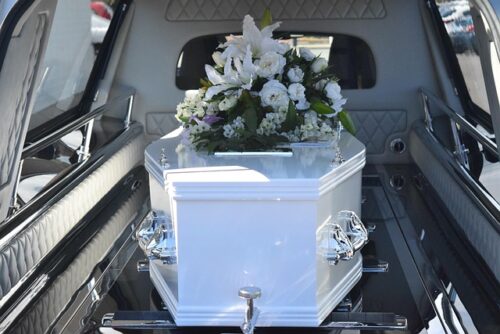Welham Jones
https://welhamjones.co.uk/wp-content/themes/welham-jones/img/logos/supersonic-playground-logo.png
300
80
Welham Jones
You may hear stories from years gone by of people rushing to get to funerals within a matter of days after a person passed away, but those days are gone. The amount of time it is taking between a person passing and their funeral has increased – and it’s due to a change in the death certification process.
How long does it typically take between a person passing and their funeral?
Before the COVID-19 pandemic, we typically needed two – sometimes three – weeks between the date of death and the funeral to allow all the necessary paperwork to be completed and the arrangements to be made. Now, however, it is generally taking five to six weeks.
Why is it taking longer to arrange funerals?
It’s all down to a change in the death certification process that came into effect last year. Since September 2024, all deaths in England and Wales have required an independent review, by either a coroner or a medical examiner – even if the death was expected.
Previously, the doctor looking after the person who had died could issue the death certificate. They are now known as the ‘attending practitioner’ and can propose why they believe the person died on the Medical Certificate of the Cause of Death (MCCD), but this must be scrutinised by an independent medical examiner before it can be submitted to the registrar.
A medical examiner is a senior medical practitioner who is contracted for a number of sessions a week to provide independent scrutiny of causes of death, outside of their usual clinical duties. They are trained in the legal and clinical elements of death certification processes and will not have been involved in caring for the patient.
Why did the government change the death certification process?
The changes to the death certification process were introduced following a number of medical scandals and inquiries, including the third inquiry into Harold Shipman and the public inquiry into the Mid Staffordshire NHS Foundation Trust.
The aim of the reforms is to provide independent scrutiny to prevent such scandals happening again, as well as providing more consistent data.
What does this mean if I am planning the funeral of my loved one?
The short answer is that the funeral is not likely to be able to take place for a few weeks after your loved one’s death. Our expert funeral arrangers can advise you on current wait times and help you plan a funeral for a date that will accommodate this.
A funeral is an important part of the grieving process for many people, so this unavoidable increased delay can be unwelcome. But our empathetic team will support you across this extended time frame in whatever way you need.
What if my religion means the funeral needs to be carried out by a certain date?
If you have religious or cultural beliefs that require an early funeral, there are special procedures to accommodate that. At Welham Jones we are experienced in arranging funerals for all faiths and will ensure that your beliefs are respected.
If you’re looking for expert, independent, local funeral director to help you celebrate the life of your loved one, contact us






